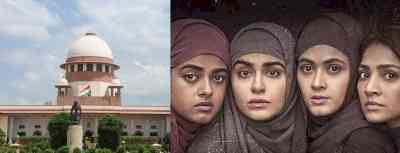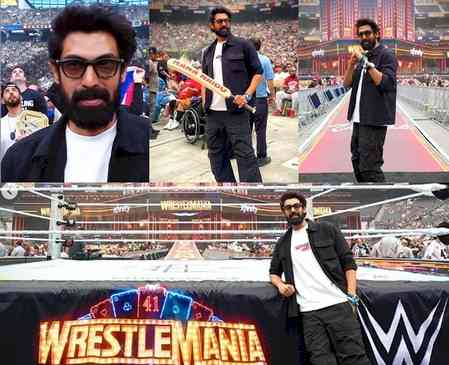Hate speech in multiple scenes, will lead to breach of peace, WB to SC on 'The Kerala Story'
The West Bengal government has told the Supreme Court that film "The Kerala Story" is based on manipulated facts and contains hate speech in multiple scenes, which may cause disharmony between the communities, while justifying its prohibition on exhibition of the movie.

New Delhi, May 16 (IANS) The West Bengal government has told the Supreme Court that film "The Kerala Story" is based on manipulated facts and contains hate speech in multiple scenes, which may cause disharmony between the communities, while justifying its prohibition on exhibition of the movie.
The state government, in a counter affidavit, said if the movie is allowed to be exhibited, it will cause breach of peace which will not be in the interest of justice.
"The movie is based on manipulated facts and contains hate speech in multiple scenes that may hurt communal sentiments and cause disharmony between the communities which will eventually lead to a law and order situation, as has been gauged from various intelligence inputs received by the state government over a period of time," said the affidavit.
The state government said to maintain public order and for the benefit of the general public, and by exercising its power section 6 (1) of the West Bengal Cinemas (Regulation) Act, it has imposed a prohibition on exhibition of the movie.
The movie was released in the entire state on May 5, along with the rest of India and was playing in over 90 theatres. "However, on the very first day after the initial shows, the Intelligence Branch of the government of West Bengal sent a communication to all the police departments alerting them that as per the intelligence report, the release of the movie is likely to cause a violent clash between the extremist groups," said the affidavit.
"During surveillance, it has been observed that the audience makes very objectionable comments whenever they see a particular scene where Hindu or Christian girls are seen tortured," it said, adding that it has also been observed that while coming out of movie halls people discuss among themselves to limit their interaction with Muslims, or that these Muslims ought to be taught a lesson.
On social media videos, photos and comments are being circulated against a particular community, which is further spewing hatred, it said.
The state government stressed that in the present case, considering the demography of the state of West Bengal and considering the hate speech used in the movie, further corroborated by the intelligence report, will said to be a reasonable restriction on the right of the petitioners.
It clarified that it is not reversing the certification given by the the CBFC but instead passed such an order to protect safety and security of the state and its residents.
On May 12, the Supreme Court posed a series of queries to the West Bengal government in connection with the ban on the film, saying that it is being exhibited in the rest of the country and there is no reason why it should be banned in West Bengal.
A bench, headed by Chief Justice of India D.Y. Chandrachud and comprising Justice P.S. Narasimha told senior advocate A.M. Singhvi, representing the West Bengal government said: "The film has been released in the rest of the country, West Bengal is no different from any other part of the country."
Senior advocate Harish Salve, representing the filmmakers, said the film ran in theatres for three days.
The Chief Justice said: "If the film can run in peace in other parts of the country, why should the state of West Bengal ban the film?....if the public does not find it worth seeing, they will not see the film."
"It is running in different parts of the country, which has a similar democratic profile as the state of West Bengal. Why should you not allow a film to run?"
The apex court issued notice to the West Bengal government on a plea by filmmakers challenging the state government's ban on the movie.
The filmmakers submitted that the state government has no power to ban a movie which has been certified for public viewing by the Central Board of Film Certification.
They claimed the state government cannot cite law and order issues to stop the screening of the movie. They argued that it will result in the violation of the fundamental rights guaranteed to them.


 IANS
IANS 










